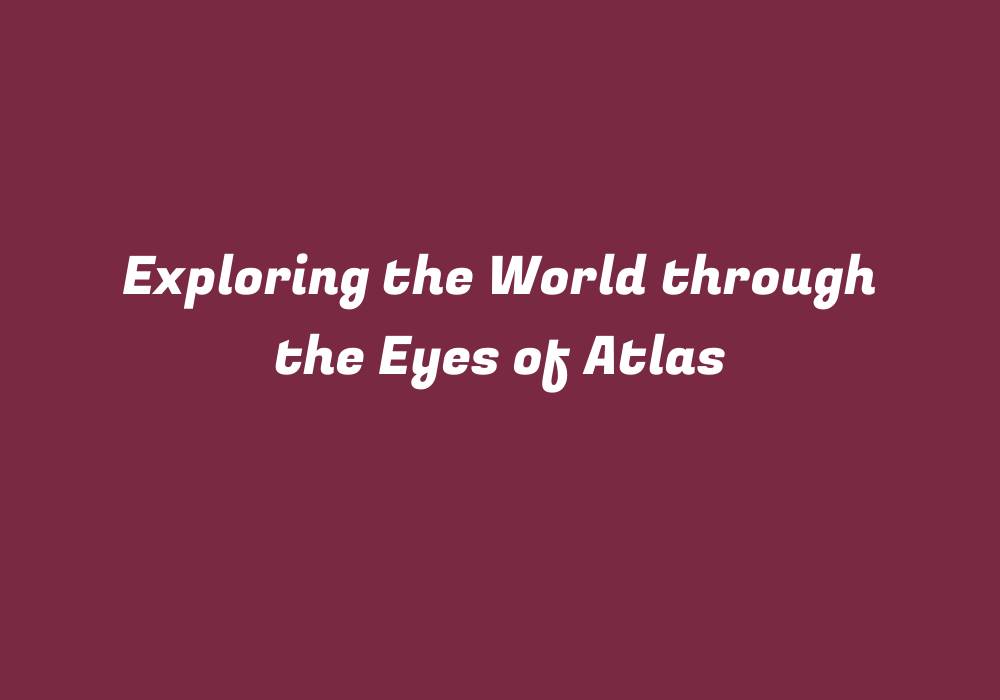Introduction
In ancient mythology, Atlas is a Titan who holds up the heavens in their entirety. The name ‘Atlas’ has since become synonymous with a comprehensive collection of geographical data – Atlases. Today, we have an unlimited array of these resources to explore and discover our world from various perspectives. This article aims to delve into the fascinating world of Atlas, exploring its significance in shaping our understanding of Earth’s physical aspects, cultures, and history.
The Evolution of Atlases: From Parchment Maps to Digital Platforms
From ancient times, humans have used maps as a tool for navigation and record-keeping. These maps were usually on parchments or scrolls, detailing geographical information, cultural practices, and historical events in different regions. The first printed atlas was produced by Gerardus Mercator in 1595, which contained detailed maps of countries, continents, and the world as a whole.
Over time, cartography has become increasingly sophisticated with the introduction of new technologies like the compass, telescopes, and satellites for accurate mapping. This progression led to the development of various digital platforms that enable users to explore the world’s geography in great detail. Today, we have numerous online atlases and digital maps available for reference, making it possible for everyone to access vital information about any location within seconds.
The Power of Atlases: Understanding Geography and Diverse Cultures
Atlases are an indispensable resource for understanding the interconnectedness of various countries across the globe. They provide valuable insights into political boundaries, topographical features, climate, vegetation, population distribution, natural resources, and cultural practices within different regions.
For instance, atlas users can learn about the history of nations like India through maps that showcase its ancient civilizations, diverse religions, and rich artistic traditions. Similarly, an exploration of African cultures via atlases highlights the continent’s linguistic diversity, ethnic groups, and unique customs. These resources make it possible for readers to appreciate the beauty and complexity of our world and foster a greater understanding of global interdependence.
Atlases as Invaluable Tools in Education and Research
Educators use atlases extensively to teach geography and history to students of all ages, helping them develop an appreciation for their place within the larger context of human society. The detailed information provided in atlases also helps scholars and researchers in various fields to analyze global trends and patterns more accurately.
For instance, environmentalists can use atlases to identify areas vulnerable to climate change or natural disasters, thus informing conservation efforts and disaster preparedness plans. Similarly, social scientists may utilize atlas data to study migration patterns, population growth, and urbanization in different parts of the world.
Exploring Earth’s Natural Wonders through Atlases
Atlases have a crucial role in showcasing Earth’s natural beauty and resources, from breathtaking landscapes like the Grand Canyon to the rich biodiversity of the Amazon Rainforest. By presenting an overview of the world’s ecosystems and wildlife habitats, atlases encourage appreciation for our planet’s environmental wealth and inspire conservation efforts.
In addition, the precise mapping of natural resources and landforms within atlases can aid in the sustainable management of these precious assets. For instance, geologists may use satellite imagery to locate mineral deposits and fossil fuels for responsible extraction, while nature enthusiasts can use topographic maps to plan outdoor adventures that minimize impact on fragile ecosystems.
Conclusion
Atlases have come a long way since ancient times, evolving into powerful tools for understanding our world’s geography, cultures, and history. As digital technology continues to improve the accessibility of this information, we can expect even more exciting advancements in the realm of atlas exploration and knowledge dissemination. From promoting global consciousness to facilitating sustainable practices, atlases remain an indispensable part of our collective journey towards a better understanding of our shared planet Earth.
